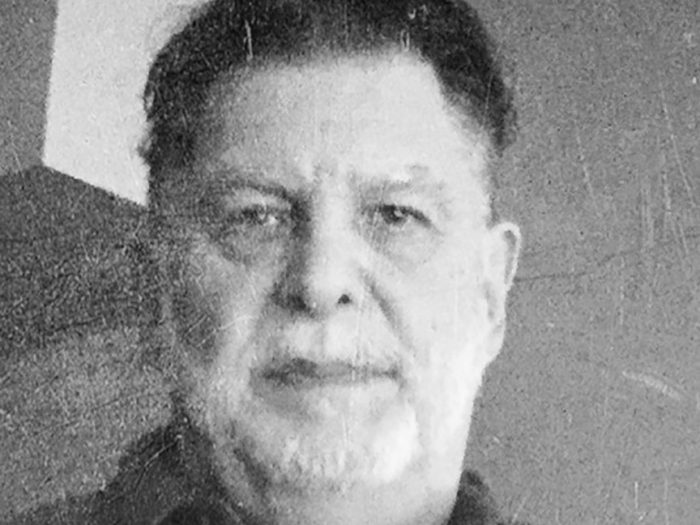Defenestration
by Martin Kleinman
Sarah and her friends come from affluence, which is why she said “defenestration,” while I simply said that Glenn jumped out the fucking window.
To me, at that stage of my life, there was no excuse for that. It wasn’t like the souls who had flung themselves out of the North Tower and into a clear blue Tuesday. You do remember that day, when school kids scurried, hair dusted with destruction, and squinted into morning’s glint.
And it wasn’t like that time in ’41 when Abe Reles, aka “Kid Twist”, flew headlong out of Room 623 of Coney Island’s Half Moon Hotel while under police protection. Murder Incorporated’s master of death-by-ice pick landed on a restaurant roof the night before he was to testify against Albert Anastasia, and thus transformed from short psychopath to spin-art corpse.
No. To my way of thinking, there was no excuse for what Glenn did. None. Sarah and Glenn grew up on the Upper West Side of New York, well after the “Panic in Needle Park” days, and before today’s calamity of condos. A guy like that? He should have jumped for joy, not out of a building.
I would later learn that Sarah and Glenn had been inseparable theater conservatory stalwarts at SUNY Purchase back in the day. After a few years of audition rounds and regular rejections, Sarah shed her ScarJo dream, and drifted back to her fallback career, graphic design.
Glenn’s theater career lurched like Chutes and Ladders. He earned just enough positive reinforcement to keep him good and hooked on the acting profession. After winning a couple of lucrative TV ads, he moved to Chelsea. The checks rolled in.
At that point, I came into the picture. I met Glenn’s sister-from-another-mister at a concert in Prospect Park and, in short order, Sarah moved in with me, to the upper upper upper upper West Side of Manhattan, 214th Street and Broadway. “Soooo convenient,” she’d tell her friends, throwing serious shade at my down-at-the-heels Inwood pre-war apartment, two floors above Liffy II and the Dominican cigar makers.
I asked Sarah about that angry four-inch scar on the underside of her left forearm, early on in our relationship. I couldn’t help but notice that this wasn’t a half-hearted pass, an across the wrist swipe. This was a vertical slash, a deliberate ditch. “It’s an old cat scratch,” she said, the first time I mentioned it. We were in bed, aglow. I ran my forefinger down her arm, gently touching the injury’s ridge. Her arm recoiled. Her face tightened.
“It’s an old gardening accident,” she told me another time. I leaned in to kiss it. She turned her back to me, then sat up in bed, then left the room.
Just months after he moved to Chelsea, Glenn’s parents divorced. His dad was a Hollywood movie producer and the mom – have you heard of her? Belle Taylor? – was a cabaret singer of local renown, with a residency at the Carlyle.
The divorce was contentious and Glenn needed Sarah’s sympathetic ear and that meant daily, late night phone calls and emergency visitations. “Gotta go – gonna talk him down off the ledge again,” she’d say, no matter the hour, or day of the week. Her tight smile that told me my permission was not expected, needed, or wanted.
And, time and time again, I’d amble down to Liffy II for a pint or seven while watching the Yankees. And I’m not ashamed to say that I’d stew about being a third wheel, left out of this tightly knit childhood army-of-two.
Six months after Sarah moved in with me, Glenn called to ask if Sarah and I cared to join him at the Carlyle to see his mother, Belle, perform. Comped.
What I remember: our Stoli martinis were very dry. Very large. Very potent.
What I remember: warm waves of applause lapped the bandstand. The crystal clink of highball glasses. Stunning young women in red-soled Louboutins, squired by greying guys who flashed gold cufflinks. Snappy bow-tied waiters, hair slick with pomade. Gold-rimmed plates of Dover sole.
What I remember: Belle’s wisp of a smile. Red fingernails that caressed an onyx Neumann microphone. A sultry slit skirt. Tired kohl-lined eyes turned heavenward to receive her spotlight sacrament.
What I most remember: Belle’s encore, Jobim’s “Waters of March,” its playful melody a bikini bursting from lyrics ripe with life.
And so she sang: “A stick, a stone, it’s the end of the road; it’s feeling alone, it’s the weight of your load…”
Backstage. Belle’s dressing room. Her generous fuss over our bodega bouquet of red roses. A barren jar of Noxzema, the centerpiece in a coronation of crumpled tissues. Vise-tight hugs for Glenn and Sarah.
What I did not know: Belle was drowning in a confluence of indignities. Her divorce had become final. She had been dropped by her third record label in six years. Days after we saw her perform, Carlyle management called her agent. They were going in a “different direction.”
Upon hearing the Carlyle’s news, she opened a Provençal rosé and began to drink. She slipped Billie Holliday’s version of Arlen’s “I Gotta Right to Sing the Blues” onto her turntable and, after the Barney Kessel guitar solo, opened her tenth floor living room window, inhaled sooty summer as it swept past her sheers, and leapt onto 86th Street in the pink silk kimono she bought in a Le Marais shop during her last Paris engagement.
The late night calls between Sarah and Glenn continued, fervent, now that Belle died. Summer passed its sunlit torch to autumn. The leaves fell. The temperatures plummeted. Without the promise of holidays past, joy went absent. New York was encased in January.
One Saturday, a snowstorm blew in from Canada. Twenty-six hours later, more than two feet of snow blanketed Broadway.
It was then that Glenn’s calls stopped.
“He’s in trouble,” Sarah said. “I just know it.”
What I remember saying: he’s a big boy.
What I remember thinking: baseball’s spring training is only four weeks away.
What I remember feeling: hope, which came from my childish, vestigial, sense of renewal each new season of baseball brings.
I am old enough to remember the old Meatpacking District. Pools of blood from primal cuts once coagulated on cobblestone streets. Trucks spewed hydrocarbons into what that passed for air in those dirty days.
Today, the area is overrun by establishments that attract the rich and mindless, including predatory bros from Jersey, who careen about in Cayennes.
Glenn’s broken body was eventually found by city snow plow operators on Ninth Avenue. As the thin sun of winter rose, a viscous river of red seeped from his mouth onto winter’s white, icy street. His face, still now for all time, looked startled, confused. His unseeing eyes fixed heavenward, as if to receive his final sacrament.
A detective in a belted, full-length black leather trench coat filled us in. Sarah collapsed in my arms. My knees buckled and I felt my eyes float. The detective noticed, and snapped at me.
“Stay strong for your wife,” he admonished. I held her close now, gently rubbing the underside of her left forearm. She stayed by my side this time, and sobbed.
This is what we later learned: A Jersey bro, drunk, lurched past our fallen friend. His entourage-of-the-entitled laughed as their drunk friend nudged Glenn with his foot.
The drunk lunged for a mailbox, to steady himself. He pulled himself upright, staggered towards his friends and, for no apparent reason, punched one of them in the cheek.
“Fuck you,” the guy spat, stunned. He rubbed his reddened face with his left hand and clenched his right. A woman tried to stay his arm, but the drunk’s jutted chin was too tempting a target. The force of the blow spun him into a parked Uber and onto the snowy sidewalk, beside Glenn.
At that point, he noticed the white ear buds Glenn wore. Oblivious to Glenn’s condition, he pulled out one of the buds and music blared into that frigid Sunday morning. The men and women in the group laughed and helped their friend to his feet.
“Shhhhhh! He’s sleeping,” one of the women slurred as they ambled down the block, laughing with the abandon afforded the careless, as pigeons parted for a skidding Escalade, as a furious wind whipped off the river, unable to silence that playful Jobim tune:
“A stick, a stone, it’s the end of the road; it’s feeling alone, it’s the weight of your load…”
BIO
 Martin Kleinman is New York City story teller. He has told his tales of real New Yorkers in his short fiction collection, “Home Front,” (Sock Monkey Press 2013), in fiction anthologies and literary publications, in www.thisisthebronX.info, and on his blog www.therealnewyorkers.com, as well as in the Huffington Post, and in venues all around New York City – from KGB Bar to Union Hall.
Martin Kleinman is New York City story teller. He has told his tales of real New Yorkers in his short fiction collection, “Home Front,” (Sock Monkey Press 2013), in fiction anthologies and literary publications, in www.thisisthebronX.info, and on his blog www.therealnewyorkers.com, as well as in the Huffington Post, and in venues all around New York City – from KGB Bar to Union Hall.
A native New Yorker, Marty has written two books on workplace innovation trends, and is finalizing a second collection of short fiction. “Defenestration” is from that new short fiction collection.


















